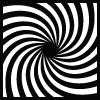Subtotal: $50 USD
Beginner’s Mind
In the beginner’s mind, there are many possibilities, but in the expert there are few.
– Shunryu Suzuki, “Zen Mind, Beginner’s Mind,” (a book I haven’t actually read, but need to sit down and read one of these days)
When I was young, I was totally comfortable with being a beginner at new things. Because I didn’t know ANYTHING. It was all new. Flash forward several decades, and there are a few things I know how to do really well. Mainly involving digital signal processing. I’m happy I am an “expert” at some things, but this makes it so much harder to be a beginner at new things. The temptation is strong to just forge ahead with a false sense of authority, pretend that I know what I am doing, and get some stuff done.
As uncomfortable as being a beginner is to me today, there are a lot of benefits to be gained from allowing myself to be a beginner when working on new creative practices. Acknowledging that maybe I don’t know how to do something new, gives me permission to take the time and focus on learning all the possibilities of this new thing.
In the last few months, I have rekindled my interest in modular synthesis. I’ve put together a smaller modular setup for a hypothetical desert island residency, that incorporates Maths by Make Noise.

I’ve owned Maths since 2012, and I knew that it was a powerful module, but I never clicked with it before. I realized that I never allowed myself to be a beginner with Maths, and just made it do things that I could quickly understand, versus taking a deeper dive into how it works. So I decided to sit myself down, take the time, and really figure out what I could do with Maths. The steps I took:
Reading. Maths has an excellent manual, with many cool example patches. I re-read the manual several times and patched up every example as I went along. I also found a useful overview of how Maths works on Zeroes and Ones.
Watching. I tend to avoid video tutorials, as I probably have undiagnosed ADHD I find myself losing patience with the pace of videos. This time around, I decided to embrace the whole “beginner’s mind” aspect of things and watched several videos from beginning to end, stopping them from time to time to patch up an idea that caught my fancy. A few of my favorite Maths tutorials:
Experimenting. Once I’d read the manual and viewed a few tutorials, I started patching up as many ideas as I could think of with Maths. At the time, Maths was basically the only module in my modular apart from the Intellijel Atlantis, so I had to use Maths for almost all modulation purposes. There was a fair amount of intellectualizing going on behind the scenes, but there was also a lot of “what happens when I plug this into that?” My favorite discovery was running pink noise into Channel 1 of Maths, and adjusting the rise and fall times to get a modulation source that sounded like bubbles!
Theory. Ok, this is the DSP developer in me talking: I like to know how things are working under the hood. Maths is essentially a voltage-controlled slew module with a few extra functions and is a spiritual descendent of the Buchla 257, Buchla 281, and Serge Dual Universal Slope Generator modules. I found a great theoretical analysis of the Serge voltage-controlled slew module on Tim Stinchcombe’s site, and am currently reading it and re-reading it until it starts to make sense.
So this week’s creative prompt: Choose something you want to learn more about, and let yourself be a beginner! Read about the subject, watch tutorials, experiment, practice, all that stuff. Don’t worry about being proficient right away – focus on the possibilities that will arise if you approach the subject with humility.
 Valhalla Shimmer
Valhalla Shimmer 




I must say I quite enjoy being a beginner in a subject. Probably because that’s when you learn fast, so it’s satisfying. The more you know, the slower the learning becomes, as you move onto more difficult things.
I also think learning new things, especially complex things, is easier in some ways when you get older, because you have (hopefully) gathered a lot of knowledge from a wide area of subjects and can draw parallels between them. Connect things, see familiar patterns. The brain is a bit less of a hungry sponge, unfortunately 🙂
Learning new things and opening ourselves up to discovery is what makes life interesting and rewarding. Every path of exploration has that “eureka” moment when we finds something that we didn’t know existed. Even as we get gain experience and become experts, we need to continue to explore and learn or else it all becomes uninteresting and routine. I say we, I mean me!
Maths is brilliant but I fear I’ll always be a beginner trying to work out what mine does! I think I may have some of Harri’s lack of spongyness in my brain.